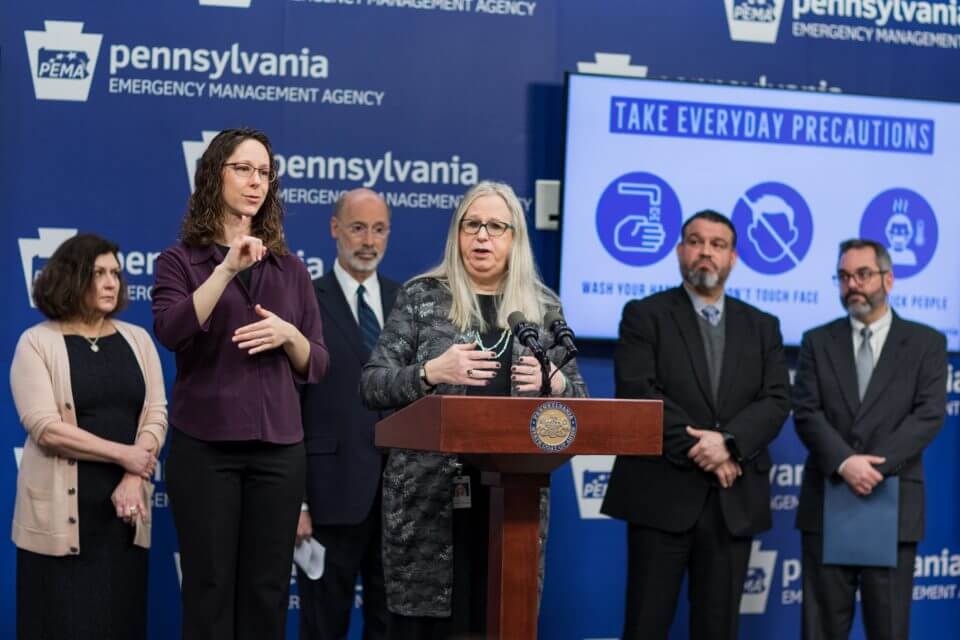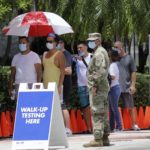
“So, how do doctors, scientists, and everyday people traverse the COVID-19 landscape, where each passing day seems to provide new information and new “theories” about our current predicament?”
As medical students, we are encouraged to avoid medical and scientific jargon in our daily interactions with patients. Complex references to vague biomedical concepts are of little use when trying to relay important information to those we are treating. Complicated jargon, thus, is inefficient, impersonal, and impractical in the normal doctor-patient setting. However, we are seeing jargon command a central place during the ongoing Coronavirus (COVID-19) pandemic. This is true in media coverage, as well as in the general interface between the medical community and the average person. Seemingly ordinary terms such as “theory,” “fact,” and “evidence” are used, abused, and misused in a manner that blurs the distinction between what is known and what is not (or cannot) be known. Similarly, other scientific terms such as “theory,” “hypothesis,” and “opinion,” which have migrated into common parlance and popular culture, are starting to adopt meanings far removed from the strict constraints they hold in science. In the taxonomy of scientific terms, for instance, “theory,” “hypothesis,” and “opinion” occupy different levels on the scientific ladder of strength.
This is a non-trivial distinction, and it highlights an important point: Unsubstantiated opinion often survives precisely because it never faces any scientific scrutiny and can, by definition, not be disproven.
An opinion is a view or notion supported by little-to-no evidence, apart from the fact that it is held by a person for a reason—or it has anecdotal reference points. An opinion’s inherent weakness is that it cannot be tested or falsified. A hypothesis, on the other hand, is, “A tentative statement about the natural world leading to deductions that can be tested. If the deductions are verified, it becomes more probable that the hypothesis is correct. If the deductions are incorrect, the original hypothesis can be abandoned or modified.” As is clear, a hypothesis is distinct from an opinion or belief about something, as a hypothesis has the ability to be accepted or rejected via the scientific method. This is a non-trivial distinction, and it highlights an important point: Unsubstantiated opinion often survives precisely because it never faces any scientific scrutiny and can, by definition, not be disproven. However, the burden of proof lies entirely with the person asserting the opinion. One cannot be expected to disprove a notion with no evidence for its truth in the same way that one cannot positively disprove the existence of the Tooth Fairy.
So what exactly is a theory, and how is it different from a hypothesis or opinion? In 1999, the National Academy of Sciences set out to clarify the definition of theory, stating that a theory is, “a well-substantiated explanation of some aspect of the natural world which can incorporate facts, laws, inferences and tested hypotheses.” Additionally, the strength of a theory lies in its ability to be independently tested and repeatedly confirmed through experimentation or observation. There is also the ability to make falsifiable predictions about its internal consistency, as well as it needing to be found consistent across scientific disciplines.
A clear example of the confusion that can be generated when terms with specific meaning enter the realm of public discourse is the statement that, “Evolution is just a theory.” If by just a theory, one refers to a scientific observation with at least as much evidence for its existence as the fact that gravity exists or that the Earth orbits the Sun, then yes, it is just a theory. While the word “theory” is often weaponized as a pejorative in an effort to discredit a hypothesis, it is important to understand that referring to something as a theory is ironically one of the highest compliments one can make of a scientific claim.
My ultimate concern with our inconsistent and incorrect use of terms such as “theory” is that it elevates opinions based on pure conjecture to the same status as theories that have been scientifically proven. An important point worth noting is that scientists and medical professionals are themselves to blame for this erosion of scientific credibility. We need to be more circumspect in our claims about the ever-evolving threat of COVID-19. One example of this took place with the mass repurposing of factories last month to produce ventilators (seen as the last line of defense against COVID-19). Within days, a worldwide effort to ramp up supply chains of ventilators ensued. Yet, all of this occurred, only for doubts to be raised later about the standard use of ventilators for a virus, whose presentation has not mimicked standard Acute Respiratory Distress Syndrome (ARDS). Doctors have now cautioned against the broad-based standardized use of ventilators, instead recommending individualized settings based on the physiological findings and phenotypical presentation of COVID-19 patients requiring ventilation.
However, it is a failure of communication when medical professionals present information in a manner that does not reflect the relative strength and certainty of the information itself.
This is not a failure on the part of the doctors operating on the information available at the time. (The medical community recommends protocols and guidelines as information becomes available to them.) However, it is a failure of communication when medical professionals present information in a manner that does not reflect the relative strength and certainty of the information itself. By being prudent about the distinction between hypotheses and theories, we can avoid providing peddlers of misinformation with the fuel they need to drive unsubstantiated opinions, as well as a generalized skepticism about the medical community.
Additionally, it is worth remembering that scientists and medical professionals are at an inherent disadvantage simply due to the nature of scientific inquiry itself. They have to adopt a more conservative and reserved outlook on issues and operate without absolute certainty on anything precisely because they understand how the scientific method works. Space must always be left for the possibility that they are wrong. But, so long as the evidence for something is abundant and presently unrefuted, scientists rightfully operate with an overwhelming probability that they are correct. Unfortunately, when it seems that every other person on social media, on television, and in daily conversation uses words such as “theory” and “fact” to spread their particular flavor of conjecture for that day, scientists need to be bolder in standing by the strict definitions of those concepts. With the plethora of conspiracy “theories” flying around the internet and “the truth behind COVID-19” never more than a click away , we need to be wary of elevating unsubstantiated and often untestable claims seemingly to the level of scientific theory.
So, how do doctors, scientists, and everyday people traverse the COVID-19 landscape, where each passing day seems to provide new information and new “theories” about our current predicament? The answer is to have purposeful and directed use of biomedical terms. While it may be expedient for government ministers, heads of state, and health professionals in the spotlight to refer to every bit of new evidence as a “theory” or a “fact,” we need to strive for higher standards in our communication. In dealing with the scientific and medical problem that is COVID-19, we must restrict the meaning of these terms to their proper usage—and resist the temptation to abandon the ever-important quality of meticulousness when relaying scientific findings. This is not an appeal to divorce the science of COVID-19 from the population via jargon but, rather, to understand that when we do not adhere to explicit definitions, implicit assumptions creep in. And these assumptions may ultimately lead to actions that jeopardize the lives of the very people we seek to protect.
Cameron Joseph is a medical student at the University of Cape Town.











